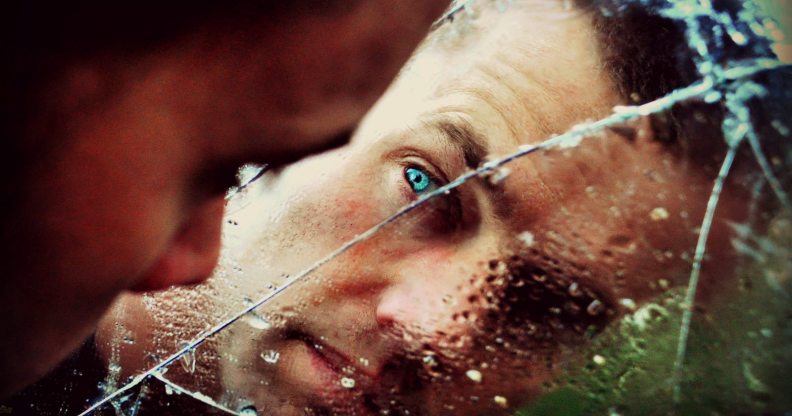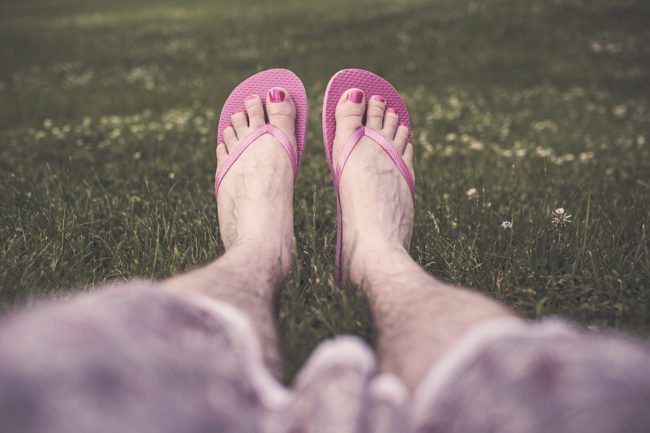Time To Talk 2018: What it’s like to deal with mental health issues when you’re LGBT, and how to find the help you need

Time To Talk Day is a national initiative designed to get people to talk about their mental health issues. As a gateway to address stigma, accessibility, and the way we discuss our mental health, we asked LGBT+ people about what unique issues they have faced in getting treatment for their mental health needs while identifying as queer.
It’s time for us to talk about the additional needs, complications and factors that need addressing when we discuss LGBT+ people’s experiences with their mental health.
And just as mental health problems can encompass so many conditions – be it depression, anxiety, OCD, bipolar, BPD or lesser-known illnesses – we are one-of-a-kind variants on the Kinsey scale.

The facts
While it is uncertain whether gay, bisexual, lesbian or trans people are more at risk of mental health issues than their peers, it is known that there are unique complications and challenges when it comes to getting a mental health diagnosis as a queer person.
Mental health charity Mind reports that those of us who identify as LGBT+ are more likely to experience a mental health problem than the wider population, however, different studies have indicated that problems can be more prevalent in certain age groups, social demographics, and even sexualities.
LGBT+ teens are four times more likely to be suicidal than their friends, the suicide risk is five times higher for less educated gay and bisexual men, bisexual people are 80 percent more likely to experience anxiety than their peers.
Although these are worth bearing in mind, these issues are not intrinsically linked to a person’s sexuality. Being LGBT+ in no way makes a person defective, or deserving of a mental health condition. But it might make the way a person relates to it different to the average straight person.
Stigma
Before a mental health issue is even considered, LGBT+ people may face stigma over their sexuality or identity.
“My presenting on the female end of the gender spectrum has caused some friction with family,” said one genderqueer person with Bipolar II.
“Following discussions or arguments with them about who I really am, it can see me very quickly swing from an excessive high – where I feel on cloud nine presenting as female, wholly confident, and unstoppable in my own skin – to a total self-loathing. Negative comments about who I am and how I appear can send me massively spiralling into a depressive state, with me repressing who I want to be and wanting to do nothing else but hide from the world,” they added.
And in the case of sufferers from the baby boomer era or Generation Z, LGBT+ people may have suffered from more aggressive forms of stigmatisation and discrimination.

“I was diagnosed in 2007. I had symptoms of mood swings from my teenage years. I was bullied at school for being gay under Section 28 where little could be done to support me especially as I attended a Catholic school,” said author and writer Michael Brown.
As homosexuality was only partially decriminalised in 1967, with the World Health Organisation only declassifying it as a mental illness in 1992, there are unique challenges that the older generation have fought in the face of securing a diagnosis and accessing treatment.
“I was once a patient in the Priory hospital. I did experience homophobia from another patient who remarked would they “cure me of being gay” whilst I’m in. There was also a nurse who was homophobic and did not understand about visitors,” he added.
Like Michael, Renee* also found her religious background conflicted with her bisexuality, and began feeling the strain of anxiety from the age of eight.
“When I started questioning my sexuality, the anxiety increased,” she said.
“At one point, anything that reminded me of the possibility of not being entirely straight would make me panic. Given the homophobia that runs through our society, it’s hard to see how I could ever have avoided this. And in the conservative Christian environment I grew up in, being queer meant being permanently on edge, permanently hiding and permanently fearful of discovery,” she added.
“The difficulties faced by people who identify as LGBTQ are often quite different from that faced by the mainstream population,” said Principal Councillor at Resort 12, Sandi James.
“The bullying, discrimination and stigma we face can leave long-term negative consequences for our sense of identity, self-esteem and value. The “coming out” process can also be quite traumatic for some, alongside that feeling of being “other” or “different” or somehow unacceptable.
Mainstream treatment can address some of the addiction and trauma problems but these other issues need a unique environment where there is understanding and empathy and the space to be able to be honest and open and the past and dreams for the future,” she added.
Lacking resources
The picture is complex, and when people don’t have access to the mental health resources they need, it can prove to be a problem.
Due to the lack of nursing bursaries available, after cuts were made in 2017, nursing courses for specialist areas like mental health are falling short, with a drop of 13 percent in applications.
The Royal College of Nursing (RCN) said staffing problems at some mental health trusts are now so serious that the safety of patients is being compromised, reports The i.

Although Prime Minister Theresa May may have pledged to increase mental health funding to deal with the crisis, NHS mental health trusts are ‘still receiving much smaller budgets than hospitals despite parity pledge’ to offer as much funding to mental health issues as physical health problems.
Michael*, who identifies as gay, said that the shortages and the scale of his mental health issues meant that he left it years before he accessed help.
But after finding an LGBT+ pay-as-you-go therapist, he has realised that any mental health issue is deserving, and he deserves to be treated just like anyone else.
“I approached London Friend, a counselling service in Kings Cross that cater to the LGBT community. I wanted to take some therapy sessions, but couldn’t afford to pay an extortionate private therapist, but London Friend work on a pay-what-you-can basis,” he said.
“It was hard to seek out help, because when you don’t feel like something is overtly wrong, then you feel like you’re wasting their time. But that was how things built up, it’s not usually an acute trauma that gets you down, it’s a slow, gradual build-up of small things that lead to a state of perpetual anxiety and lack of feeling truly able to be yourself.
“It was humbling to see a community of gay men outside of clubs and bars talking openly about their problems, and offering each other their perspectives on things. I didn’t feel group therapy was quite right for me, but we should encourage more situations within the ‘community’ where we are talking honestly and openly in a non-judgemental space, without drink or drugs.
“I had a pre-interview with one of the therapists and felt like they were going to tell me that I wasn’t eligible for one-to-one therapy, but after our chat, I realised I had really made the right decision to apply.”

“In my experience, and according to the research and available evidence, the LGBTQ community has a greater likelihood of experiencing trauma and addiction because of the bullying, discrimination, abuse about sexuality as well as the heteronormative undercurrent of life in the world,” says Sandi James.
“When we grow up as ‘other’ and feeling different or like an outsider, it has significant impacts on our sense of identity and sense of place in the world. All these things and others can lead to addiction and other problems.
“The barriers that LGBTQ people face can come from the dominance of heteronormative treatment in mental health services. It also comes from the issues mentioned above, where a lived experience based in stigma, discrimination and misunderstanding leaves people feeling that no-one understands or can help them.
“When someone requires help for difficulties that arise from not being understood or not feeling worthwhile or accepted in the world there will be barriers in accessing health care from institutions that are mainstream and, actually, may not understand the nuances of being LGBTQ and the difficulties that can be experienced because of this. Shame, embarrassment and a sense of hopelessness or worthlessness can compound these difficulties,” she added.
The community bond
Being LGBT and having mental health problems doesn’t just result in complications and stigma, however – there are plenty of upsides in the loving and supportive community that can ease the road to recovery.
While some felt that the burden of their health problems were alleviated when they spoke to like-minded people, others felt that the support from other queer people made them more comfortable in themselves as a whole.
One person we spoke to found her release in performing as a Drag King.
“I have had bouts of anxiety and panic attacks, through reasons I probably won’t ever be able to put my finger on which is why I can’t really directly link LGBTQ things to it – I just know that the more I have grown in my queer identity, the happier in myself I have become,” they said.
When Kathryn first went to a therapist, she focused on recovering from PTSD, and didn’t fully recognise her attraction to other women.
But after attending an LGBT mental health support group when she studied abroad, she found that being part of a community that understood her helped her feel empowered and understood on her route to recovery.
“When I had PTSD and it was bad, that was so all-encompassing that I was totally in denial about being queer at all because it would have just been too much to deal with all at once,” she said.
“Then when I had finished treatment for PTSD and was recovered for the most part I started thinking more about being queer, but I never addressed it with my first therapist because it didn’t feel like the issue at hand.”
“But then a few months later I was thinking about being queer a lot more and that kind of caused a resurgence bc of the ways it intersected with being a survivor.
“It was at that point I joined a queer support group facilitated by a queer therapist, and that was great because there were also other people who had kind of been just questioning and some people who were further along in their journeys, and the therapist had also shared a lot of our experiences.
Because I was on my study abroad and not being around my community it was great to have a safe space where I could talk openly,” she added.
“For a while, I wished I could get rid of both my mental illness and my attraction to women – as if they were somehow equally bad for me,” said Renee.
“All the homophobia I had internalised over the years twisted my sexuality into its own illness, and fighting to free myself from that belief was so, so hard. But today I’m living in an incredibly inclusive and welcoming environment, and, for the first time, have friends who truly understand and love me for (rather than despite of) my sexuality.
“Perhaps unsurprisingly, my mental health is better than it has been for years. I’ve had to come to terms with myself twice: once, accepting myself as a mentally ill person, and then again accepting my sexuality. Life is a lot better once you find that peace.”
Advice
Counsellor Sandi James understands why getting support may be more complex for queer people, but says it is paramount that those who are struggling to find someone they trust and they feel comfortable speaking to.
“Find someone who you trust and who you feel comfortable talking to.
“Seek out service providers that understand the specific issues you are facing and ask for help. Everyone deserves appropriate and effective treatment and support and there are services out there that can help. It may take some research but don’t give up.
“You deserve to be treated with respect and understanding and there are people who can help,” she added.
Useful websites and numbers:
Southwark Wellbeing Hub
LGBTQ Mind
MindOut
LondonFriend
Stonewall’s list of mental health providers across the country
Samaritans

